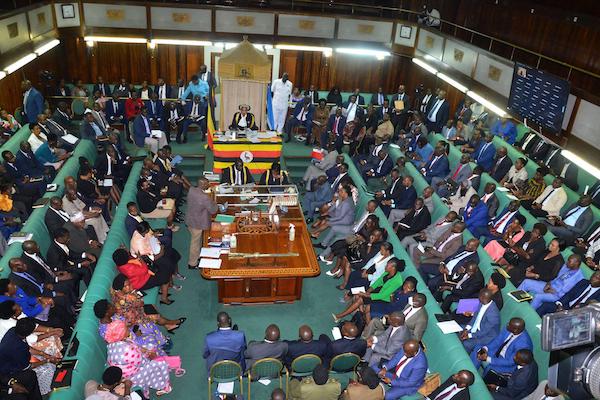Ugandan Church leaders welcomed the Anti-Homosexuality Act signed into law at the end of May, which introduces some of the most severe penalties in the world for LGBTQ people including the death penalty for “aggravated homosexuality”.
Western governments have condemned the new law, but it has been welcomed in some African countries as a rejection of “cultural imperialism”.
The Anglican Archbishop of Uganda, Samuel Kaziimba, was a vocal supporter of the bill during its passage through parliament.
He said that “LGBTQ-affirming countries have shown the negative consequences” and thanks President Yoweri Museveni “for not surrendering to their threats and for protecting Uganda”.
He noted that the Church of Uganda did not in principle support the death penalty for “aggravated homosexuality” – an offence which includes same-sex rape and any repeated offence under the legislation – but supported a sentence of life imprisonment.
Although Uganda’s Catholic bishops did not issue a formal statement on the new law, they were believed to be supportive despite the Pope’s public opposition to the criminalisation of homosexuality. They were expected to comment after their June plenary meeting.
Several parliamentary supporters of the bill, including the speaker Anita Among, are Catholics. The MP Charles Onan, who advocated the bill throughout its passage, is a Catholic priest suspended by his bishop in 2020 for political activity.
After Museveni signed it into law, Fr Pius Male, chancellor of the Catholic Archdiocese of Kampala, said “Thanks be that he has done it”, according to the Monitor newspaper.
The Archbishop of Canterbury, Justin Welby, wrote to Archbishop Kaziimba to express his “grief and sorrow” at Ugandan Anglicans’ support for the law which he said was “a fundamental departure from our commitment to uphold the freedom and dignity of all people”.
“There is no justification for any province of the Anglican Communion to support such laws: not in our resolutions, not in our teachings, and not in the Gospel we share,” he said, and called on conservative Anglican movements to state their opposition to the criminalisation of homosexuality.
Uganda’s Anglican bishops were among those who refused to attend last year’s Lambeth Conference because some provinces of the Communion permit same-sex marriage.
A Ugandan Catholic priest told The Tablet that the country’s religious leaders had little common ground but would “speak as one against the common enemy of homosexuality”.
“Like Caiaphas, Herod and Pontius Pilate, who agreed about nothing except the undesirability of Jesus, Uganda’s disagreeing religious leaders now agree about the undesirability of homosexuals in Uganda and in Africa as a whole,” he said.
He added that they have “led the way in the repeated mischaracterisation of homosexuals as paedophiles, imperialist agents, prostitutes, spreaders of aids and being mentally sick”.
An unexpected dissenter in Uganda was the evangelical pastor Solomon Male, the self-styled “leader of the crusade against homosexuality”, who told the Monitor that the law “doesn’t bring anything new to existing laws and isn’t going to be implemented”.



 Loading ...
Loading ...